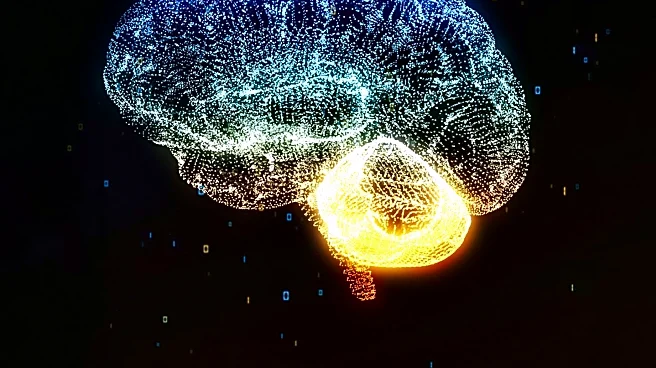What's Happening?
Recent research has highlighted that men experience significant neurological changes after becoming fathers, similar to those observed in birth mothers. A study led by Darby Saxbe, a professor of psychology at the University of Southern California, used MRI scans to measure changes in the brains of new fathers. The findings revealed a reduction in brain volume, specifically in gray matter, which is thought to streamline brain function and adapt to the demands of parenthood. This change is less pronounced than in mothers but still significant. The study also found that fathers who were more involved in childcare experienced greater brain changes. Additionally, hormonal shifts were observed, including decreased testosterone and increased levels of prolactin and oxytocin, hormones associated with caregiving and bonding.
Why It's Important?
These findings underscore the biological and psychological transformations that accompany fatherhood, challenging traditional gender norms around parenting roles. The research suggests that fathers are biologically equipped to engage in caregiving, which can enhance family dynamics and child development. Understanding these changes can inform public policy, particularly in advocating for paid parental leave for fathers, which could support these biological adaptations and promote healthier family environments. The study also highlights the mental health challenges new fathers may face, emphasizing the need for support systems to mitigate stress and anxiety associated with parenting.
What's Next?
The research calls for further studies to explore the parental brain's plasticity and the long-term implications of these neurological and hormonal changes. There is a push for policies that support new parents, such as comprehensive paid family leave, which could facilitate these biological changes and improve family well-being. Countries with generous leave policies, like Finland, have shown increased paternal involvement when leave is specifically designated for fathers. This could serve as a model for policy changes in the U.S. to encourage paternal caregiving and support family health.
Beyond the Headlines
The study's findings challenge societal perceptions of fatherhood and highlight the importance of recognizing fathers as active caregivers. This could lead to cultural shifts in how parenting roles are viewed and valued. The research also points to the need for mental health resources for new parents, acknowledging the psychological toll of caregiving. By understanding the biological basis of these changes, society can better support fathers in their parenting roles, ultimately benefiting children and families.









